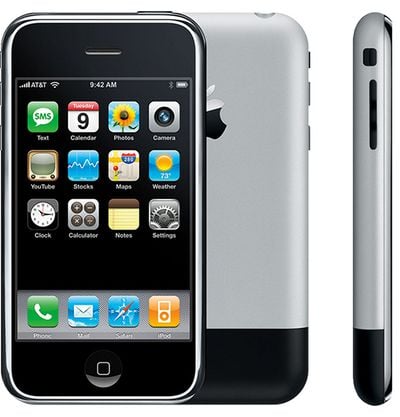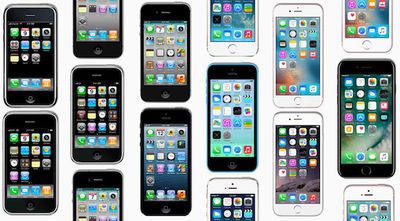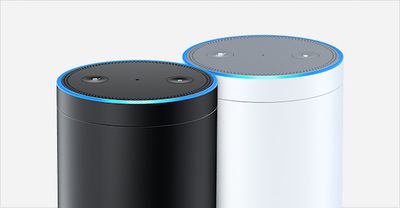To commemorate the tenth anniversary of the iPhone, Apple marketing chief Phil Schiller sat down with tech journalist Steven Levy for a wide-ranging interview about the smartphone's past, present, and future.

The report first reflects upon the iPhone's lack of support for third-party apps in its first year. The argument inside Apple was split between whether the iPhone should be a closed device like the iPod, or an open platform like the Mac, a discussion that Schiller said was ultimately "shut down" by then-CEO Steve Jobs.
Steve Jobs shut down the discussion, Schiller recalls. “He said ‘We don’t have to keep debating this because we can’t have [an open system] right now. Maybe we’ll change our mind afterwards, or maybe we won’t, but for now there isn’t one so let’s envision this world where we solve the problem with great built-in apps and a way for developers to make web apps.”
Levy suggested that the iPhone's great moment was when the App Store launched a year later, creating a world where for "every imaginable activity" there was "an app for that." Schiller, perhaps unsurprisingly as Apple's marketing chief, said that belief undermines how truly "earth-shattering" the iPhone was at the time.
“That undervalues how earth-shattering the iPhone was when it first came to market, and we all first got them and fell in love with them,” he says. “iPhone made the idea of a smartphone real. It really was a computer in your pocket. The idea of real internet, real web browser, Multi-Touch. There were so many things that are core to what is the smartphone today, that created a product that customers fell in love with, that then also demanded more stuff on them, more apps.”

Nowadays, some critics are wondering whether Apple is playing it safe as of late, arguing that recent iPhone models have only incremental improvements rather than revolutionary new features. But, again, Schiller downplayed this notion and said the changes in more recent iPhones are "sometimes even bigger now."
“I actually think the leaps in the later versions are as big and sometimes even bigger now,” he says. “I think our expectations are changing more, not the leaps in the products. If you look through every version—from the original iPhone to the iPhone 3G to the 4 to the 4S, you see great changes all throughout. You see screen size change from three and a half inch to four inch to four point seven and five point five. You see cameras going through incredible change, from the first camera that couldn’t shoot video, to then having both a front and a backside camera, to now three cameras with the stuff we’re doing, and with live photos and 4K video.”
Schiller positioned the iPhone as a top smartphone. "The quality is unmatched. The ease of use is still unmatched. The integration of hardware software is unmatched. We’re not about the cheapest, we’re not about the most, we’re about the best."
In a press release yesterday, Schiller said Apple is "just getting started" with the iPhone, while CEO Tim Cook promised "the best is yet to come." Building upon those comments, Schiller told Levy that he hopes in 50 years, people will indeed look back and realize how much was yet to come.
Schiller hopes that 50 years people will look back at this point and say, “Wow, they didn’t realize how much was to come — in fact, others missed it because they were busy running around looking for other things. Everyone has their opinions at this point, but it could be that we’re only in the first minutes of the first quarter of the game,” he says. “I believe this product is so great that it has many years of innovation ahead.”
Levy, however, went on to question "whether a pocket-sized device like the iPhone will still be as relevant decades hence," particularly as "a lot of observers have been saying we are at the start of the era of the conversational interface."

At CES last week, for example, a number of reputable publications said Amazon's Alexa platform "stole the show" or offered similar accolades, after companies showed off everything from new cars and robots to fridges and laundry machines integrated with the voice-controlled assistant, which launched in late 2014.
Apple itself had an early lead in this artificial intelligence space when it debuted Siri on the iPhone 4s in 2011.
Schiller opined that "the best intelligent assistant is the one that's with you all the time," such as the iPhone. Schiller added that "people are forgetting the value and importance of the display," which he said is "not going to go away."
“I'm so glad the team years ago set out to create Siri — I think we do more with that conversational interface that anyone else. Personally, I still think the best intelligent assistant is the one that’s with you all the time. Having my iPhone with me as the thing I speak to is better than something stuck in my kitchen or on a wall somewhere.”
“People are forgetting the value and importance of the display,” he says. “Some of the greatest innovations on iPhone over the last ten years have been in display. Displays are not going to go away. We still like to take pictures and we need to look at them, and a disembodied voice is not going to show me what the picture is.”
Full-Length Article: Phil Schiller on iPhone’s Launch, How It Changed Apple, and Why It Will Keep Going for 50 Years





















